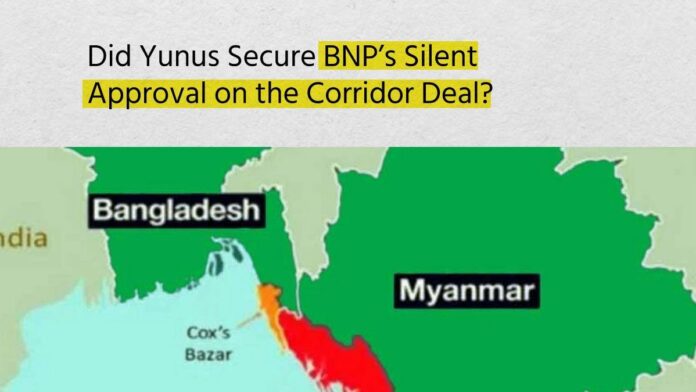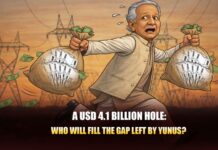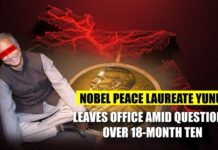A political firestorm has erupted across Bangladesh over the proposed humanitarian corridor for the Rohingya and the potential use of the Chittagong port. The BNP had earlier taken a strong stance on this issue, demanding the resignation of National Security Advisor Dr. Khalilur Rahman, citing threats to the country’s territorial security, and even called for protests in Dhaka.
However, a dramatic scene recently unfolded in London. BNP’s acting chairman Tareque Rahman held a 90-minute meeting with Dr. Muhammad Yunus, the self-declared “Chief Advisor of the Non-Government.” Strikingly, Dr. Khalilur Rahman—the very man BNP had called a conspirator—was not only present at the meeting but welcomed Tareque and later gave a press statement on BNP’s behalf.
Khalilur, a U.S. citizen serving as National Security Advisor in the interim administration, has long been accused by BNP of masterminding the corridor plan. Yet, at this critical meeting, Yunus included him and projected him as a central figure in the dialogue.
Analysts believe this was a calculated strategy by Yunus—to extract silent consent from the BNP on the corridor by creating confusion and staging unity. By bringing Khalilur to the forefront at the press conference, the impression was given that there’s no longer a rift between BNP and the current administration.
Outside Yunus’s London office, BNP activists held posters reading “Bangladesh First.” But the presence of Khalilur Rahman in the meeting has sparked doubts about Tareque’s stance, both inside and outside the party.
In a separate incident at Chatham House, Yunus made controversial remarks, accusing Bangladeshi voters of “selling their votes.” To many, this hinted at a deeper intention—not to restore democracy, but to hijack it. However, the very next day—after that insult—Yunus made a U-turn in the meeting with Tareque, agreeing to elections before Ramadan but with the condition that all preparations must be completed beforehand.
Observers are calling this a “tactical trap” designed to confuse and weaken BNP’s position. Yunus had already stirred controversy earlier on this trip when his Press Secretary Shafiqul Islam falsely claimed UK PM Keir Starmer was abroad in Canada and unavailable to meet. In reality, Starmer was in London the entire time.
A day before the Yunus-Tareque meeting, Yunus’s Home Affairs Advisor, Md. Jahangir Alam Chowdhury, announced that Tareque Rahman would be allowed to return to Bangladesh if he wished—despite the interim government having blocked his return for the last ten months. Many are calling this sudden change a form of political blackmail.
Within the BNP, local leaders are expressing frustration and disappointment over Tareque’s participation in the meeting. They fear it gives unwarranted legitimacy to Yunus’s controversial proposals—such as the corridor and port lease.
Even inside BNP, concerns are rising that if the party softens its position on core issues like the corridor or the national security advisor, its image will be severely damaged. One leader said,
“If we change our stance on these anti-state issues, people will brand us as traitors.”
Another noted,
“Khalilur Rahman’s presence at the press briefing is political suicide. The very man we opposed is now the face of our dialogue. This is betrayal of principle.”





